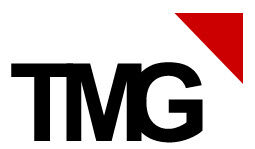Outsourcing: Who Moved My Market?
With the economic meltdown making US consumers cut back on costs, there’s been a paradigm shift in the way American firms and multinationals are looking at fast developing countries like China, India and Brazil. They are not looking at these countries as mass producers of low-cost goods and services, but are now looking at them as potential customers. This could signal the beginning of a new phase in the US economy where the emphasis is less on US consumers and more on places like China where the consumer now has more money to spend.
The local markets of advanced nations appear small as compared to the potential markets in nations like China, India and Brazil where the combined population would be in the vicinity of 2.5 billion people who are younger and willing to spend as compared to the smaller but older populace of Western Europe, Japan and the U.S.
According to experts, Brazil is likely to help Latin America out of recession. Though many nations globally are still in the grip of the economic crisis, the Brazilian economy is likely to grow by 4% to 6% next year. Rio de Janeiro being chosen as the venue for the 2016 Olympics is seen as significant in helping the economy recover faster.
But whether this helps increase employment and investments in the U.S. is still not very clear. The fact that there is increasing American investment for production near emerging economies in lieu of shipping goods from US facilities overseas, means Americans are definitely looking at profits from those emerging markets.
The U.S. is definitely trying to boost its economy by increasing exports just as they have in the past. Had it not been for overseas customers, a small construction-equipment firm like Power Curbers Inc. near Salisbury, N.C., would have gone under during the meltdown.
They were lucky that infrastructure development was going on in other countries, as almost 75% of the sales were international as compared to the 25% just two years back, said the president of Power Curbers Inc.
Companies like General Electric Co. say that advanced nations like the U.S. are relying heavily on new economies. The GE chairman said that to be able to sustain the balance in the shift of consumption power from “wealthy nations to emerging giants” there has to be a different business format for a company like his to succeed. With a growing market in heavily populated countries like China and India, the old business format of developing products at home and distributing them globally will no longer be relevant, he said in the October issue of Harvard Business Review. He added that more power needs to be placed in the hands of the local people of these countries and their views taken on designing, building and marketing the products.
Though he did not refer to the implications of this on American employment figures, the trend is clearly visible from the company’s annual reports. The report quotes that GE, in 2004, had 165,000 employees in the US and 142,000 employees outside. But last year the figures were: 152,000 employees in the US and 171,000 outside. This clearly indicates growing US investment overseas. But it’s also likely to revive old issues like the outsourcing downside as well as US tax and currency policies that encourage outsourcing.
Source: Chicago Tribune, October 6th, 2009
FYI







